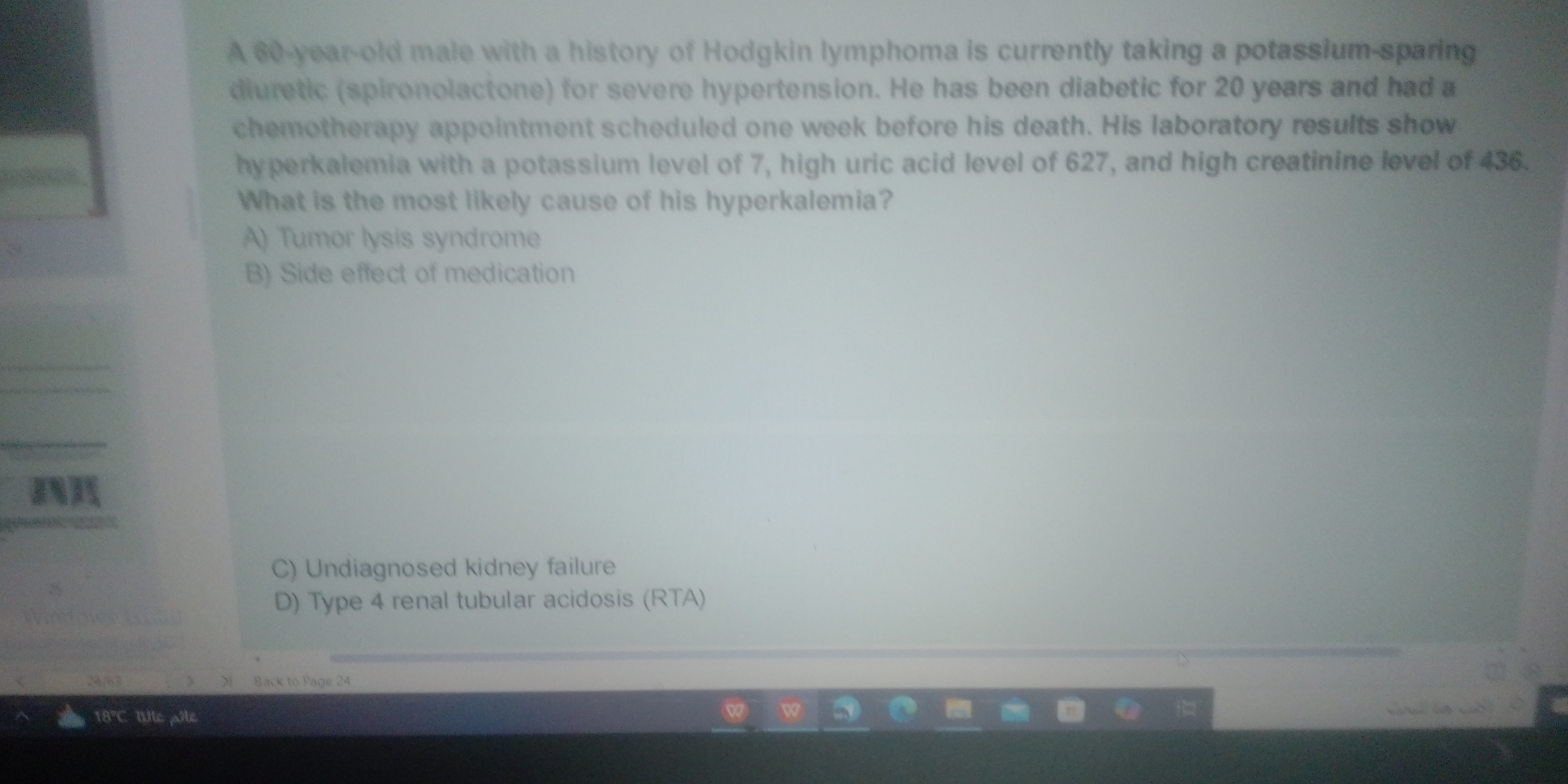A 60-year-old male with a history of Hodgkin lymphoma is currently taking a potassium-sparing diuretic (spironolactone) for severe hypertension. He has been diabetic for 20 years a... A 60-year-old male with a history of Hodgkin lymphoma is currently taking a potassium-sparing diuretic (spironolactone) for severe hypertension. He has been diabetic for 20 years and had a chemotherapy appointment scheduled one week before his death. His laboratory results show hyperkalemia with a potassium level of 7, high uric acid level of 627, and high creatinine level of 436. What is the most likely cause of his hyperkalemia? A) Tumor lysis syndrome B) Side effect of medication C) Undiagnosed kidney failure D) Type 4 renal tubular acidosis (RTA)

Understand the Problem
The question describes a medical case of a 60-year-old male with specific health conditions and lab results, and it asks for the most likely cause of his hyperkalemia given multiple-choice options.
Answer
Tumor lysis syndrome
The most likely cause is tumor lysis syndrome.
Answer for screen readers
The most likely cause is tumor lysis syndrome.
More Information
Tumor lysis syndrome can occur after chemotherapy in patients with cancer, leading to elevated potassium (hyperkalemia), uric acid, and creatinine levels.
Tips
A common mistake is not considering recent chemotherapy, which can precipitate tumor lysis syndrome.
AI-generated content may contain errors. Please verify critical information